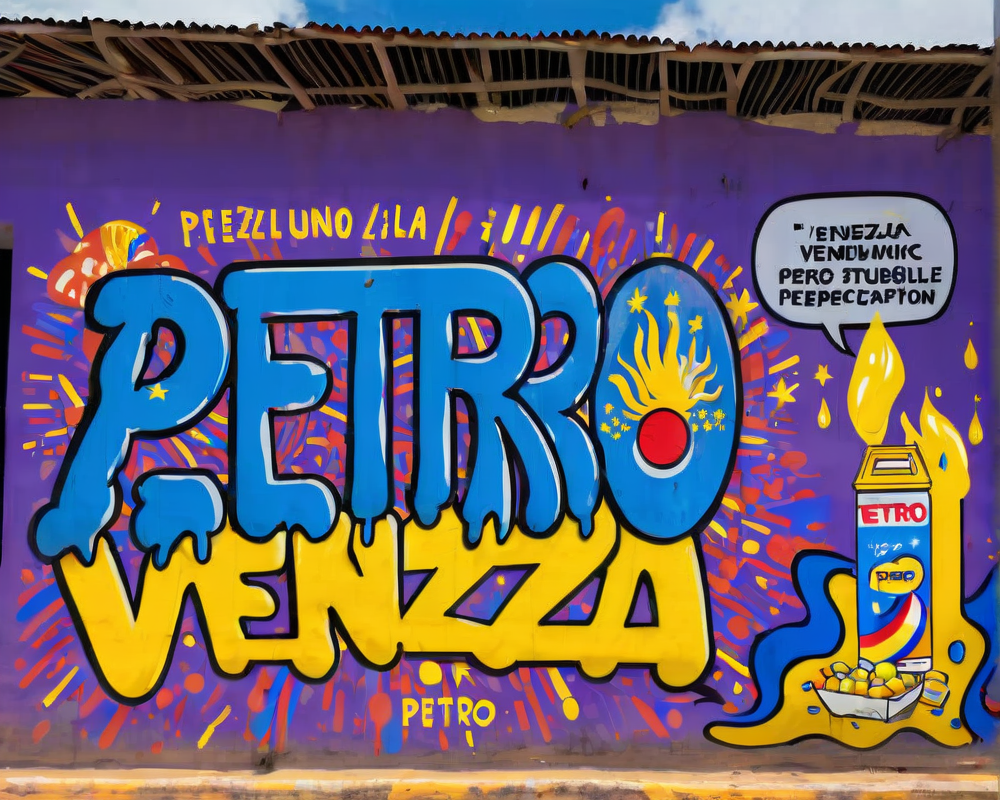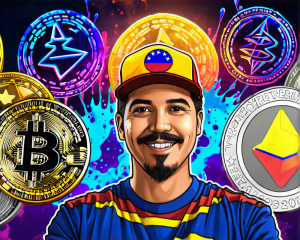The Birth of the Petro
When Venezuela’s President Nicolás Maduro proudly presented the Petro, he was the life of the party. Imagine a government-backed cryptocurrency claiming to save a nation plagued by hyperinflation—a plot twist that would make even a soap opera writer raise an eyebrow. Dubbed an oil-pegged marvel, it was marketed as the savior of the Venezuelan economy. Spoiler alert: the enthusiasm hasn’t quite translated into reality.
A Nation’s Doubt
Venezuelans, both at home and those who have sought refuge elsewhere, are scratching their heads. The applause has turned to skepticism, and many view the Petro as a glitzy illusion crafted by a beleaguered regime. When the people don’t exactly buy what the government is selling, it raises questions—lots of questions.
Political Landscape
To truly grasp the Petro’s reception, you have to wade through the turbulent waters of Venezuela’s politics, where two factions lock horns: the Chavistas, loyalists of the late Hugo Chavez’s socialist legacy, and those longing for change after almost two decades of the United Socialist Party’s reign. The struggle means citizens are not just grappling for currency value but are steeped in a full-blown socio-political crisis.
The Crypto Conundrum
While it may seem like the Petro could shine in this dark economy, you quickly find cracks in the dream. As Ricardo, a recently exiled Venezuelan, pointed out, the majority of the population lives under the poverty line. Access to technology—a smartphone, anyone?—is a luxury few can afford. For a crypto to be effective in daily transactions, you’re looking at a minimal audience willing and able to engage with it. Let’s be real: many are simply scrambling to survive, not to speculate on digital currency.
Propaganda or Progress?
Maduro’s administration insists the Petro is a pathway to prosperity, constantly rallying support through social media hashtags like #AlFuturoConElPetro. However, fail to meet the criteria for success—like widespread community engagement—and what you may have is just a flashy facade cloaked in propaganda. Ricardo states that the financial literacy gap further marginalizes crypto opportunities.
The Dark Side of Mining
You’d think Venezuela, with its cheap electricity, would be a mining wonderland. Yet, the once-promising landscape is marred by law enforcement crackdowns and corruption. Luis recounts harrowing tales of miners facing police raids. Although officially sanctioned post-Petro, the mining scene remains fraught with danger as narratives swing wildly from economic empowerment to the ominous resurgence of government oppression.
Dodging Sanctions with Digital Dollars
With sanctions being a constant thorn in its side, the Petro is seen by some as a strategic tool to circumvent international restrictions. Rómulo, one of the locals, perceives it as just another play by corrupt officials to manipulate the already dire situation, questioning its legitimacy every step of the way.
The Dystopian Response from the People
The voices of skepticism in Venezuela are not just whispers in the wind. Many citizens vehemently oppose the idea that a currency crafted by a totalitarian regime could ever replace the Bolivar. With a rich narrative of betrayal from their government, there emerges a clamor for real solutions rather than digital tricks.
Conclusion: The Uncertain Future of the Petro
As the Petro continues to hover at the interstice of hope and despair, it’s evident that while some see potential, many more see it for what it is—a gamble where the house always wins. So, grab your popcorn but expect the plot to thicken, because with every twist and turn, Venezuela’s relationship with the Petro remains an unfinished story.















+ There are no comments
Add yours